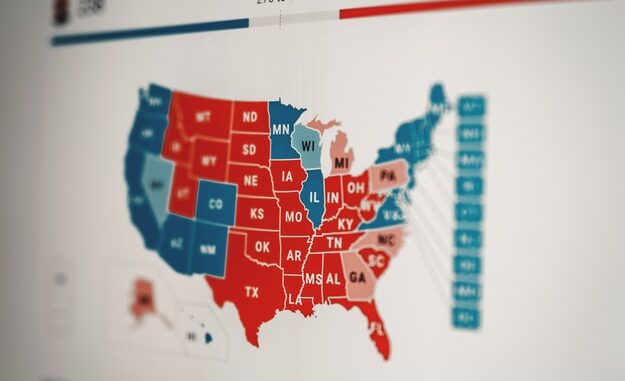
By Chiles Spencer
On Monday, Dec. 14, the Electoral College will meet to formally cast ballots for the United States president and vice president. The vote is expected to make president-elect Joe Biden’s 2020 presidential victory official and finalize his win.
Many Americans, including some Amarillo College students, don’t actually understand or support the Electoral College. A recent Gallup Poll showing that 61% of Americans support abolishing the Electoral College in favor of a popular vote. “I have no idea what it is exactly,” Emily Tull, an art major, said. “I just know that they have the final say in the election. Their votes are the ones that count.”
Josiah Tull, an art major, described the Electoral College as “a process that gives states with smaller populations more power per capita than larger states to avoid large population centers deciding all elections.” He added that “the winner takes all approach of most states and the general bloated and esoteric bureaucracy of the whole thing creates an impenetrable wall between the will of the people and actual election results.”
With Donald Trump’s presidential win in 2016, you could be forgiven for thinking the majority of United States citizens voted to elect him. Despite winning the election, however, Trump actually lost the popular vote by nearly 3 million votes with the majority of voters actually casting their vote for his opponent, Hillary Clinton. His victory was decided by the Electoral College where he received 304 of the 538 total votes. This type of result had only happened three other times throughout the country’s history, most recently in the 2000 election when George W. Bush lost the popular vote to vice president Al Gore but similarly won the Electoral College and the presidency.
In the U.S., most political officials are elected based on the popular vote, meaning that whoever receives the most votes from the people wins office. The president, however, is elected based on the vote cast by the Electoral College, a group of electors formed every four years to decide the results of each presidential election. These 538 electors are appointed by the states and decided based on the number of members in Congress each state has, one for each member in the House of Representatives and one for each Senator with the District of Columbia is allocated, three electors.
In most states, these electors are awarded to the candidate with the most votes in a winner-takes-all system. However, Maine and Nebraska each use a version of proportional representation to decide how their electors are awarded.
Although these electors pledge to vote for the candidate they were awarded to, the option does exist in some states to break that pledge and vote for whoever they choose, something that seven electors (called “faithless electors”) chose to do in 2016, voting for candidates such as Ron Paul and Bernie Sanders instead of either major candidate, though this had no effect on the election as Donald Trump would have had the 270 votes necessary to win the election regardless of how these electors voted.
This system was created during the 1787 Constitutional Convention as a way to allow both the people and the state to elect the president and stemmed from different factors, one of which was the fact that most Americans at the time did not have access to information about different candidates. There was also worry among Southern leaders that a direct election would lead to the North having too much power since so many living in the South were slaves who could not vote. The Electoral College allowed these states to count their slaves (each as ⅗ of a person) as part of their population when accounting for their share of the total count. This resulted in 10 of the country’s first 12 presidents being southern slave owners.
Unlike in 2016, the results of this most recent election have again pointed to the winner of the popular vote also expected to receive the most electoral votes as Joe Biden is expected to be officially elected president when the Electoral College meets.

Leave a Reply